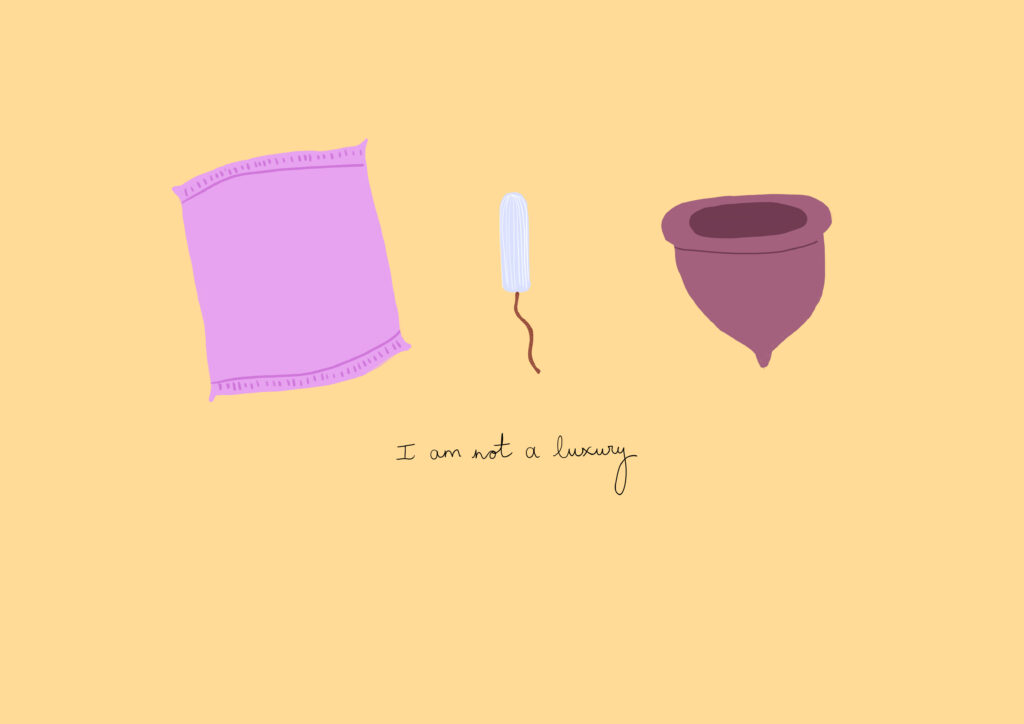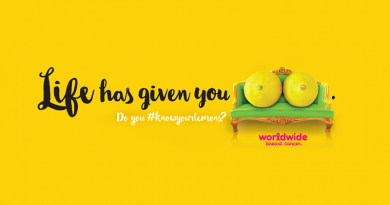Talking about periods: A guide for guys
The human race would not exist (or continue) without periods, so let’s start normalising the conversation about them!
Say it loud: period. There, I said it. The P word. And one of two things happened to you when you read it:
1. It didn’t gross you out? Good – it really shouldn’t.
2. Oh, it did gross you out? Come on, engage with it. I know it sounds like it’s something you should be afraid of, but in reality, it’s quite the opposite.
Periods are something everyone should understand, whether they experience them or not. So, seriously, let’s talk…
So, what even is a period?
Great question. When someone with a vagina hits puberty, they will usually experience their first period. A period, or menstruation, is where blood and womb lining leave the body through the vagina. This is just one part of the menstrual cycle, which repeats around every 28 days (although this may vary) throughout a person’s fertile years. In short, it’s a whole cycle of events, not just 3-5 days of blood. You can read about periods and the menstrual cycle in a lot more detail in this handy article.
Period blood is full of nutrients – some people even use it as plant food! – and it’s what allows an embryo to attach to the womb and develop into a foetus. So, the next time you hear the word period, don’t laugh. Instead, think, “hell, they’re magical!”.
Note: we use the phrase ‘people with periods’ in this article because not all people who experience menstruation are women or girls, and equally, not all women and girls have periods. Non-binary people, trans men, and other gender non-conforming people might menstruate, and some cisgender women might not have periods for lots of different reasons. We use this phrase to make sure everyone is included.
This video from AMAZE explains what happens before and during a period.
The stigma around periods
People are weird about periods. The stigma mostly comes down to this:
The (warped) rationale: Anything which comes out of a woman (except a baby and agreeable opinions) is disgusting. This includes: menstrual blood (yuck), breast milk (yuck), radical opinions (yuck), and any other discharge (yuck). Anything which comes out of a man, however, isn’t necessarily considered disgusting. That’s called a double standard. (There seems to be no space for people who aren’t cis women and cis men in this rationale!)
The (damaging) effect: The silence around periods creates a culture of shame. Period shame exists in lots of different cultures, and it means that we don’t understand periods or may have misconceptions about what they are, who has them and how they impact people.
Three main reasons why you shouldn’t fear talking about periods
🩸 They’re natural and nothing to be embarrassed about. In fact, they happen monthly (ish) to half of the people you know. Which makes the fact that they can be expensive all the more troublesome too!
🩸 Periods are a sign of good health, and changes in the menstrual cycle can be a helpful sign that something isn’t quite right.
🩸 They keep the human race going. Besides the fact that more than half the population can bleed for days at a time and not die, the human race would literally not exist (or continue) without periods.

We should all understand periods
You don’t need to have a period to be able to understand them. Periods may seem scary and solely ‘women’s business’, but it’s not just women and girls who have periods! Anyway, not having a period isn’t a reason to ignore them. It’s likely you know people close to you who have periods and may be affected by them in different ways, so it’s important we all understand menstruation more so that we can support the people we love.
Everyone experiences periods differently, both physically (blood, pain, cramps, migraines, nausea, vomiting) and mentally (mood swings, foggy brain). It’s important to be sensitive to this and not make assumptions.
Let’s talk about periods more
So, let’s all (especially those of us who don’t have periods) pay tribute to periods by making an effort to talk about them more. There’s no point avoiding it. Instead, dive in and get to know menstruation.
I’m not saying you should go asking all the people you know who have periods if they’re currently having one or not. While they’re not something to be embarrassed about, we should still respect people’s privacy. But, you can certainly ask about them more broadly. I did while researching this article… and in doing so, the conversations you have will go some way to helping to break the age-old stigma around them – a stigma that exists across nearly all cultures around the world.
That said, while periods themselves don’t need to be scary, starting a conversation around them can be. If you want to ask someone about it, our suggestion is to start by asking: “what’s it like to have a period?”. Always make sure to ask first whether someone feels comfortable talking about periods – the stigma and shame surrounding menstruation might mean people are taken aback or even a bit shy when you bring up the topic.
You can also find some further reading to help you along in your period-learning journey in our ‘Other support’ section below too.
Other support
- How do periods work?
- Is extreme period pain normal?
- Bloody Good Period
- The Pink Protest
- Period. by Natalie Byrne (book)
Read more
Last Reviewed 12 July 2023
Image Credit: Karolina Grabowska via Pexels





